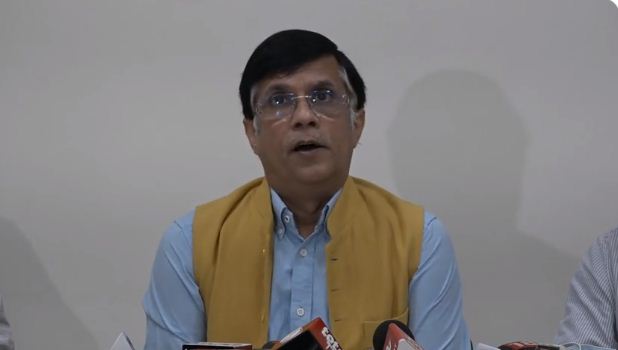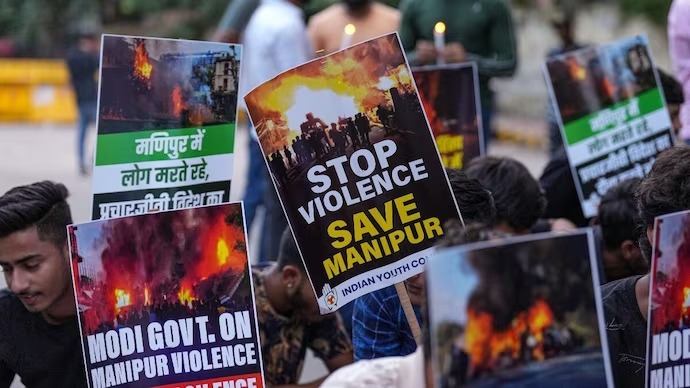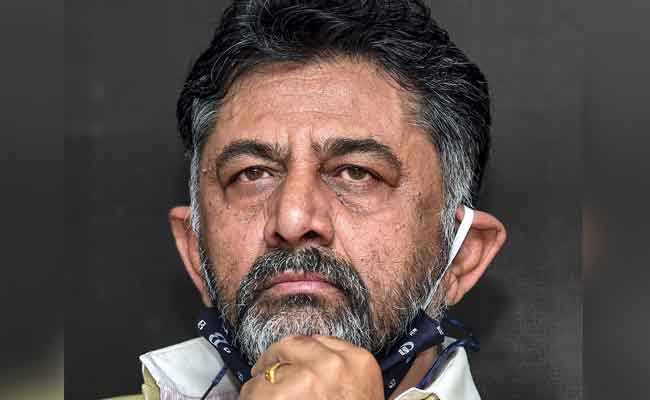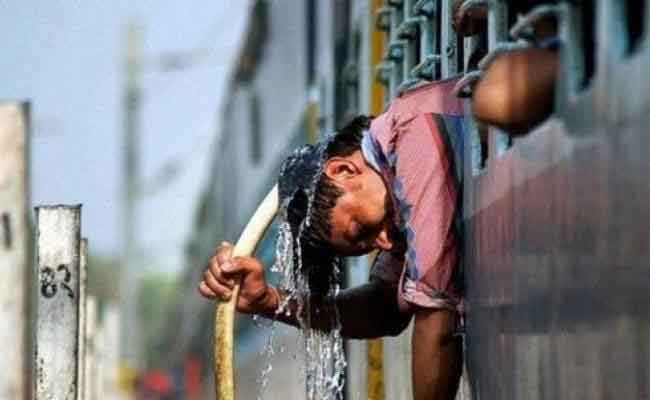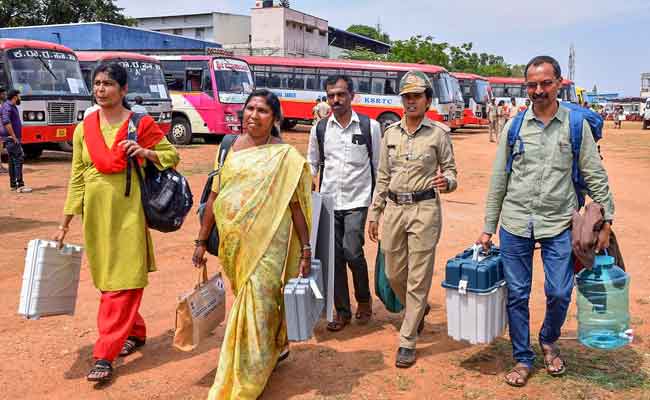New Delhi, Oct 25: The Congress on Monday accused Facebook of "influencing" India's elections and "undermining" democracy and demanded a joint parliamentary committee probe into it.
"Facebook has reduced itself to a Fakebook," Congress spokesperson Pawan Khera said while raising the purported leaked internal reports of the social media giant on not initiating action against hate speech posts on its platform in India.
There was no response from Facebook India to the allegations.
The Congress leader also alleged that Facebook was acting as an ally of the ruling BJP and pushing its agenda.
Khera referred to research documents by whistleblower Frances Haugen, who has worked at Facebook, and alleged that it took no decisive action against the perpetrators of such hate posts in Hindi and Bengali.
He alleged that Facebook's internal reports have identified fake accounts with over a million impressions, yet it did nothing about it.
"We demand a JPC probe to look into the role of Facebook in influencing our elections," Khera told reporters.
He alleged that Facebook was trying to "'compromise and undermine our democracy in trying to shape through fake posts the opinions of people"'.
He alleged that BJP workers and those of its affiliates have infiltrated into the structure and functioning of Facebook.
"What right does Facebook have to push a particular ideology through fake posts, pictures and a narrative. It is shocking how only 0.2 per cent of hate speech is removed by Facebook, which despite making the most money from India, does not have the mechanism to filter posts in Hindi or Bengali," he said.
Khera said just nine percent of users in India are in English and yet they do not have systems to filter the posts of regional languages.
Alleging that the role of Facebook during Delhi riots and West Bengal elections has been under suspicion, he said "The role of Facebook can no longer be dismissed as an error of omission as they are knowingly furthering the agenda of the ruling party and its ideology which is hate-filled, bigotry and dividing society."
"Why should we not accuse Facebook of interfering in our elections by influencing the voting behaviour of its consumers. This is serious election fraud and this is serious interference in our elections by a foreign company," he alleged.
"Why is Facebook quiet on these accusations which have come from within it. Why is the government silent on this, just because it suits their agenda and Facebook has become a tool in the hands of the BJP and its affiliates," he asked.
Khera alleged that in the wake of an expose by its own former employee, there are many questions that Facebook and the government need to answer.
"Despite knowing all of this, why hasn't Facebook designated RSS and Bajrang Dal as 'dangerous organisations' based on its own internal reports?
"While the Government of India had been extremely proactive against Twitter citing Social Media safety compliance, why are they not uttering a word now," he asked.
He also alleged that internal reports and recommendations of Facebook's security team went against the recommendations of Facebook's safety team, insofar as they prioritised commercial interests over the safety of Indian citizens, and yet no action has been taken by the Government.
"Doesn't this clearly implicate the presence of a 'quid pro quo'," he asked.
Internal documents at Facebook show "a struggle with misinformation, hate speech and celebrations of violence" in India, the company's biggest market, with researchers at the social media giant pointing out that there are groups and pages "replete with inflammatory and misleading anti-Muslim content" on its platform, US media reports have said.
LIVE: Congress Party Media Briefing by Shri @Pawankhera at the AICC HQ.#BJPRSSfakebook https://t.co/j0jpMxblin
— Congress (@INCIndia) October 25, 2021
Let the Truth be known. If you read VB and like VB, please be a VB Supporter and Help us deliver the Truth to one and all.
Washington DC: In a scathing critique of human rights abuses, the United States State Department has released its annual report titled "India 2023 Human Rights Report." The document, compiled by the Bureau of Democracy, Human Rights, and Labor, sheds light on a myriad of issues, including extrajudicial killings, enforced disappearances, arbitrary arrests, and surveillance of civil society activists and journalists.
One of the most concerning issues outlined in the report is the outbreak of ethnic conflict between the Kuki and Meitei communities in Manipur. The conflict has resulted in significant human rights violations, with hundreds dead and tens of thousands displaced from their homes since early May.
The report criticises the Indian government's response, citing minimal credible steps taken to identify and punish officials responsible for human rights violations. Instances of arbitrary or unlawful killings, including extrajudicial killings, are highlighted, such as the case of former Samajwadi MP Atiq Ahmed and his brother Ashraf Ahmed, who were shot dead in custody in Uttar Pradesh.
Furthermore, the report highlights an alarming incident where constable Chetan Singh fatally shot three Muslim passengers and a Railway Protection Force official on a train from Jaipur to Mumbai. Witnesses claimed Singh selectively targeted his victims based on their names, leading to allegations of a hate crime.
Extrajudicial killings are not isolated incidents, as the report reveals a staggering 813 cases registered between 2016 and 2022, with Chhattisgarh and Uttar Pradesh recording the highest numbers. Additionally, disappearances allegedly involving government authorities and arbitrary arrests are widespread, with police accused of failing to file required arrest reports, resulting in unresolved cases.
The report sheds light on the misuse of special laws to delay judicial reviews of arrests, particularly citing the Unlawful Activities Prevention Act, which accounted for over 8,000 arrests between 2015 and 2020. It also documents instances where individuals were detained for custodial interrogation without proper identification or arrest warrants.
Property seizure and forced evictions without due process are also condemned in the report. Numerous cases were reported where individuals were displaced from their residences and had their properties seized or demolished, often under the pretext of municipal regulations.
Of particular concern is the targeting of vocal critics from the Muslim community by state governments, especially after protests or communal violence. Human rights activists report instances where bulldozers were used to destroy homes and livelihoods without adequate legal recourse, raising questions about the abuse of power.
In addition to physical harassment and attacks, journalists critical of the government face intimidation tactics, including raids on their workplaces and homes, seizure of electronic devices, and threats of legal action. The report highlights instances where government officials, at both local and national levels, exert pressure on media outlets, constrain freedom of movement, and disrupt access to communication services, such as mobile telephones and the Internet.
The report concludes by emphasising the Indian government's restrictions on digital media and frequent monitoring of users, undermining freedom of expression and privacy rights.

